Orange County Truck Accident Lawyers
Orange County spreads throughout the Los Angeles, CA metropolitan area. Its most populated cities include Anaheim, Irvine, and Santa Ana (which is also the county seat). Six of its cities are located along the Pacific Coast, attracting many beachgoers and outdoor enthusiasts. Orange County is also home to many renowned attractions such as Disneyland, Angel Stadium, Balboa Island, Knott’s Berry Farm, Crystal Cove State Park, and Mission San Juan Capistrano, making this county a popular tourist area.
Many Fortune 500 companies are headquartered here, including Ingram Micro, First American Corporation, Broadcom, Western Digital, and Pacific Life. Several big box power centers can be found in this county as well, which increases semi-truck traffic. With this increase comes an increased risk of truck accidents that need the attention and expertise of an Orange County truck accident lawyer from our personal injury law firm. Many of the deadliest motor vehicle accidents on Orange County roadways involve big rigs.
Schedule your free consultation by calling (888) 488-1391 to speak with a truck accident lawyer in Orange County.
Trucking Accident
$3,120,000.00
Paz v. Airfax Logistics (settled on 5/26/2020) – settlement in a case involving a client who was involved in a trucking accident and sustained a traumatic brain injury and other trauma.– TINA ESHGHIEH
As the demand for consumer goods rises, so does the number of semi-trucks on the road. Not only are there more trucks sharing the road with other motorists, but the trucking industry also places extreme pressure on its drivers to deliver their goods within strict deadlines. Drivers must cut corners when it comes to safety, leading to severe and even fatal accidents. Our Orange County truck accident lawyers have seen the disastrous results firsthand.
An Orange County truck accident lawyer is an invaluable asset to those who have suffered injuries or other losses in a large commercial truck collision. Semi-trucks are inherently dangerous, more so than other vehicles, due to their enormity. A fully loaded commercial truck can weigh up to 80,000 pounds, hovering 13 feet above the asphalt. Their incredible size and dimensions give them a higher center of gravity and make them more challenging to maneuver.
If a big rig crashes, it’s more likely to involve other motorists, especially if it occurs at high speeds on one of California’s busy roads. If you were injured in an accident with a commercial truck, it’s time to hire a skilled Orange County truck accident lawyer from our acclaimed firm. Our attorney will fight for justice and compensation on your behalf. Our team will do all they can to ensure you don’t suffer financially due to the negligent actions of a truck driver or trucking company.
Trucking Industry Accident Statistics
Unfortunately, truck accidents happen all the time. In its 2018 Pocket Guide to Large Truck and Bus Statistics, the Federal Motor Carrier Safety Administration (FMCSA) reveals many sobering statistics that establish just how rampant these crashes are, including:
- Since 2013, the number of vehicle miles traveled (VMT) by large trucks has increased, accounting for about 9.1 percent of all VMT.
- Since 2013, freight weights for semi-trucks have also been on the rise.
- In 2016, nearly 12 percent of about 35,000 fatal traffic accidents involved a big rig.
- In 2016, there were over 7 million nonfatal traffic accidents; semi-trucks were involved in about 7.4 percent of them.
There’s no doubt that the trucking industry is growing. The number of collisions their rigs are involved in is disproportionately large compared to their VMT. The state of California was second only to Texas for the total number of traffic fatalities involving semi-trucks in both 2015 and 2016. Sadly, in truck accidents, the occupants of the other vehicles are the most at risk of serious injury or death.
Freight transportation in California is heavily reliant on the trucking industry. As such, motorists in Irvine, Santa Ana, and Anaheim have no choice but to share the road with commercial trucks and tractor-trailers. Sometimes sharing the road isn’t really sharing and ends in tragedy.
After a big rig accident, you can rely on our Orange County truck accident lawyers. They can investigate your accident, determine how other parties were negligent if they broke federal regulations, and most importantly, help you seek full and fair compensation for your damages.





Federal Regulations Governing the Trucking Industry
Unlike other vehicles on the road, commercial trucks are governed under federal and state laws of operation. The FMCSA enforces several hundred laws that trucking companies, carriers, and truck drivers must obey. From driver training to maintaining their fleet, all aspects of the trucking industry are covered in these laws.
Failure by the truck driver or trucking company to adhere to these laws serves as compelling evidence of negligence if a collision occurs. Federal trucking laws and regulations include:
Hours of Service Regulations
Drug and Alcohol Testing
Truck drivers must comply with pre-hiring drug and alcohol testing, spontaneous tests, and tests required following severe accidents. California has a legal blood alcohol content (BAC) limit for commercial drivers of 0.04 percent. However, even if their BAC isn’t that high, any amount, no matter how small of alcohol or drugs in their system, could indicate an impairment-related accident.
Cargo Loading
Electronic Logs
Vehicle Maintenance
Strict maintenance minimums exist for commercial trucks. Their drivers must complete daily vehicle inspections and timely repairs. Not properly inspecting a big rig before its road could result in part failure and other related crashes. It’s essential to note that part failures can also allude to manufacturer negligence, creating potential grounds for a product liability claim.
When you hire our experienced Orange County truck accident lawyers from our reliable injury law firm, they can help you determine if any FMCSA or state laws were broken that led to your accident. They know the many potential forms of evidence that might support your personal injury claim. We use police reports, eyewitness accounts, and trucks’ onboard electronic logging devices (like black boxes) as evidence. Our investigation might reveal that a broken law, such as an hour of service violation or improper loading, was the cause or contributed to your accident.
What is Negligence?
Negligence is a legal framework often used in personal injury cases. Anyone who violates their duty not to cause harm to others is negligent. Most California trucking accident cases involve comparative negligence. Under comparative negligence, the court assigns a specific amount of negligence to each person involved in the crash.
It’s important to note that you could actually be somewhat at fault for your accident but still recover compensation from other at-fault parties. You can also seek compensation from multiple parties if there was more than one negligent party. Suppose part of the blame for your accident is assigned to you. In that case, your financial recovery will be reduced by your percentage of fault.
For example, if the court awarded you $100,000 in damages, but you were 30 percent at fault, you would receive $70,000 from the other party. An Orange County truck accident lawyer can help ensure that you receive proper compensation and that you aren’t blamed for a crash that you didn’t cause.
What You Should Know After an Orange County Trucking Accident
If possible, get the contact and insurance information for all involved drivers. Whatever you do, refrain from speaking to the insurance company or providing a written or recorded statement. It’s imperative that you speak with one of our Orange County truck accident lawyers first.
Call us as soon as possible so we can advise you as to your next steps. Insurance companies notoriously attempt to take advantage of accident victims by:
- Offering an initial low but quick settlement.
- Twisting what they say in a recorded statement.
- Trying to get them to say something detrimental to their claim in a recorded statement.
You can avoid letting them take advantage of you by calling Arash Law headed by Arash Khorsandi, Esq and his legal team before you speak to them. A severe truck accident is often a life-altering event. Your Orange County personal injury lawyer will be an invaluable resource during your recovery. They will handle all legal matters on your behalf and fight for your financial compensation while you focus on healing from your injuries.
Your attorney can also instruct you on what to do immediately after your accident. Once you hire our Orange County truck accident lawyer, they will get to work building your case. The first step is to determine who is responsible for causing the accident. Once that person or party is identified, your lawyer can help you pinpoint all of your damages and determine how to prove the full extent of them.
While insurance is the first place to go for financial recovery after a motor vehicle collision, most of them work tirelessly to avoid paying claims or paying them fairly. When you hire an attorney, you won’t have to face any insurance companies on your own. Our attorneys are familiar with many different insurance carriers and how they operate.
When an insurance adjuster finds out that a claimant is represented by one of our Orange County truck accident lawyers, the likelihood of them trying to refute your claim or offer you an unfair settlement decreases significantly.
Seek Immediate Medical Care
Most truck accidents cause serious injuries that require victims to go straight to the hospital in an ambulance. However, suppose you are one of the lucky ones who doesn’t need to.
In that case, it’s still imperative that you receive medical attention as soon as possible. A doctor can examine you for internal injuries that may not have symptoms yet. The medical report they generate will be crucial in proving your personal injury claim against whoever is liable for your injuries.
Building a Truck Accident Claim
Besides any medical reports from your care, it’s also essential to get a copy of the police report from the accident. Doing so is typically done by contacting the law enforcement agency responding to the accident. However, it likely won’t be available for at least a few days post-accident. Your medical and police reports, along with evidence from the scene of the collision and eyewitness testimony, will become the backbone of your injury claim.
Once your Orange County truck accident lawyer identifies who is responsible for your injuries and damages, they will begin establishing the four elements of negligence essential to succeeding in your personal injury claim. These elements are:
- Duty of care – The at-fault party owed you a duty of care. For instance, a truck driver owes others on the road a duty of care not to drive while impaired by drugs or alcohol.
- Breach of duty – You must prove that the other party breached their duty of care to you. Actions like not complying with FMCSA regulations or drinking and driving can be considered breaches.
- Damages – To have a valid legal claim, you must have suffered damages. These include pain and suffering, medical expenses, loss of enjoyment of life, lost wages and income, or loss of consortium, just to name a few. Your Orange County truck accident lawyer can help you identify your damages to ensure the best outcome in your case.
- Proximate cause – Finally, your damages must be the direct result of the at-fault party’s negligence. You or your attorney must prove that if it weren’t for the other party’s negligence, you wouldn’t have accrued your damages. Your damages cannot be the result of something or someone else.
Who Is Liable for Your Damages?
In a semi-truck accident, liability is sometimes unclear. It’s also likely that multiple parties are liable for your accident.
- The truck driver
- The truck driver’s employer
- A third-party driver
- The truck’s manufacturer
- A part’s manufacturer
- Spinal cord injuries (SCIs)
- Traumatic brain injuries (TBIs)
- Bone fractures
- Facial injuries
- Internal injuries
Many of these injuries take a long time to heal. They could also cause permanent disability and keep you from returning to work. When you hire an Orange County truck accident lawyer as soon as possible after your accident, you significantly increase your chances of holding the other party liable for your injuries.
Why Do You Need an Orange County Truck Accident Lawyer?
Truck accidents have a greater chance of causing severe injuries, disabilities, fatalities, and vehicle repair and replacement costs. Since commercial trucks are so large, they typically injure multiple drivers and passengers in an accident. There are many different complexities involved in big rig accidents. A well-versed Orange County truck accident lawyer from our award-winning injury firm can help you navigate them effectively.
Your lawyer can help you collect and preserve evidence to support liability in your claim. They may also be able to prove vicarious liability. Our lawyers are seasoned in determining your best opportunities for financial recovery in these multi-faceted accidents. With an attorney on your side, you don’t need to worry about the possibility of any procedural or administrative errors causing the courthouse to jeopardize your claim.
Handling a personal injury claim on your own will require you to file various forms at your local courthouse. These forms must be completed in full and within deadlines, highly stressful for someone trying to heal from severe injuries. If you miss deadlines or don’t complete forms correctly, your personal injury case could be thrown out.
Keep in mind that if your claim is against a large trucking carrier or a major distributor, they will have experienced in-house legal teams defending their interests. Pursuing a case against them can be nerve-wracking and unsuccessful if you go at it alone. However, our skilled Orange County truck accident lawyers can fully navigate your claim, ensure your court paperwork is filed correctly and on time, and manage the at-fault party and their attorneys.





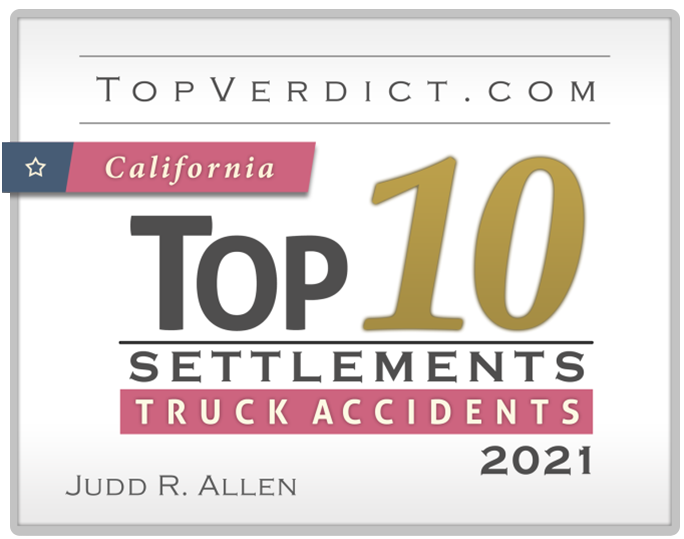


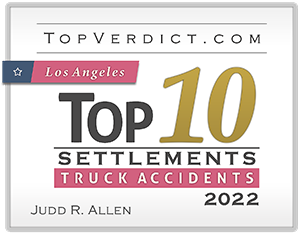

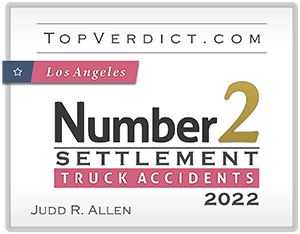

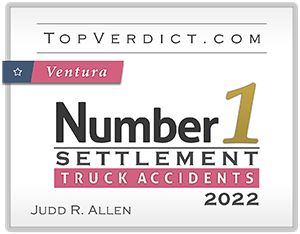
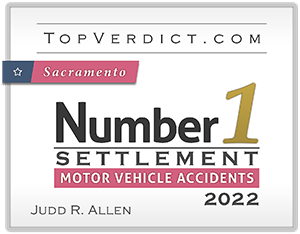

Contact an Experienced Orange County Truck Accident Lawyers Today
Our highly skilled Orange County truck accident lawyers at Arash Law founded by Arash Khorsandi, Esq. have decades of experience assisting personal injury clients just like yourself to get the compensation they deserve. We’ve collected over 500 Million dollars for injured clients across the state. We help injured individuals in San Francisco, Riverside, Sacramento, San Jose, Los Angeles, San Diego, Sherman Oaks, and throughout California.
Contact our injury firm today at (888) 488-1391 or use our online form to schedule your complimentary consultation with one of our attorneys. We have multilingual staff to help our non-English speaking clients as well. It’s your right to seek full and fair compensation for your injuries. Take the first step in doing so by reaching out to us for the legal representation you need. Our Orange County truck accident lawyers will be here for you every step of the way.































